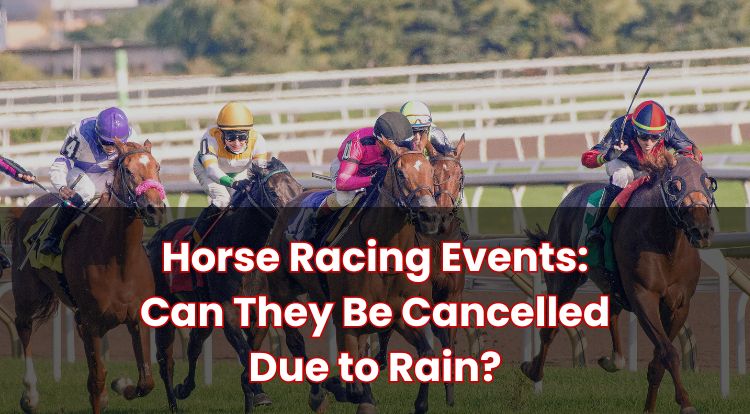Are There Any Simple Horse Racing Systems That Work?
Horse racing in the UK is full of variety, with different race types, track conditions and horses competing almost every day. With so much choice, it is natural to wonder whether a simple system can help make selecting a bet feel easier.
A system is simply a method, or set of rules that guides your decision, so you do not need to look at every race from scratch.
This blog looks at what a simple horse racing system is, why some people use them, and what they can realistically offer. It will also explain some key points to consider before trying one.
What Do People Mean by a Simple Horse Racing System?
A simple horse racing system is a method that uses one or two clear rules to help guide betting decisions. The aim is to remove the need for detailed research on every runner.
One of the best-known examples is betting on the favourite. The favourite is the horse priced by bookmakers as the most likely to win, usually because of recent form, the trainer, or other factors.
In UK horse racing, favourites win roughly 30–35% of races. This makes them the most likely group to succeed, but it does not lead to steady profit. Bookmakers set the odds to reflect both the horse’s chance and their own built-in margin, which means that, over time, the potential returns from backing favourites usually fall short of covering the losses.
Other examples can include:
- Betting on horses that won their previous race.
- Following horses trained by certain well-known stables.
- Backing horses of a particular age group.
These approaches may be easy to follow, but they do not account for all the elements that affect a race and do not guarantee any winnings.
Can Any Horse Racing System Really Work Consistently?
Horse racing is unpredictable. Each race depends on the horse’s condition, the jockey’s tactics, the type of ground, the draw, and even small incidents such as a poor start. A system may give a structure, but it cannot remove this uncertainty.
Even when a strategy uses statistics, the results are never fixed. For instance, betting on the favourite in every race works out at about one win in three, respectively. However, long-term records show that this approach usually leads to a small overall loss. This happens because bookmakers build a margin into their prices, called the overround, which means they expect to make money across all races, no matter which horse wins.
In practice, no system guarantees consistent profit. What it can do is give you a repeatable way to approach your decisions, which some people find helpful.
Simple Horse Racing System That Works: Key Things to Know
When a horse racing system looks simple, it is important to be clear about what it actually provides. Here are some key points:
- No system is flawless. There will be times when horses lose, even if the approach has worked in other races.
- Bookmakers build in a margin. This means that even if a method identifies several winning horses, the payouts are usually arranged so that potential returns may not cover the losses.
- Bet types differ. A win only bet pays out if the horse comes first. An each-way bet is split between the horse to win and the horse to finish in a place. The number of places paid can vary by bookmaker and race.
- Simple rules leave gaps. For example, focusing on the favourite makes choosing easier, but it ignores other factors like distance, going, or the jockey.
A system can give structure to your selections, but it cannot guarantee outcomes.
What Factors Should You Look at Before Using a System?
Before trying any system, it can help to know the basics of how horse racing works in the UK.
Odds and Value
Odds show how much you would receive if your bet is successful. Short odds, like 2/1, suggest a higher chance of success, but may return less. Longer odds, like 20/1, suggest a lower chance, but may return more.
Some bettors look for value, which means checking if the odds on offer seem fair compared with how they assess the horse’s chances. Bookmakers may differ, so comparing odds can sometimes highlight small differences.
Race Types and Conditions
UK racing is split into flat and National Hunt (jumps). Flat races are usually run over shorter distances, either on turf or all-weather tracks. National Hunt races include hurdles and fences, and usually cover longer distances.
The going (firm, good, soft, heavy) describes the ground condition and can have a big effect on performance. Some systems focus only on one code, or on horses proven on certain surfaces, to help keep decisions clearer.
Bankroll and Staking
A bankroll is the amount of money put aside specifically for betting.
Staking refers to how much is placed on each individual bet.
Some bettors may choose fixed small stakes to try and keep results steady, while others might use a set percentage of their bankroll for each bet. Keeping a record of outcomes can help show how well an approach performs over time.
Are Popular Horse Racing Systems Worth Trying?
The value of a system depends on what you want from the experience.
If you prefer decisions to be quick, then rules such as betting on last-time-out winners can help narrow your options. On the other hand, if you enjoy looking at form in detail, then fixed systems may feel too limiting.
Trying a system on paper first—by writing down selections without placing money—can help you see how it may potentially perform before deciding whether to use it in practice. However, as sports-betting involves an element of chance, any winnings can never be guaranteed.
How Can You Tell if a System Is Safe and Sensible?
A safe and sensible system is one that:
- Is simple to follow without pressure.
- Uses stakes that remain affordable.
- Does not claim certain wins or unrealistic outcomes.
- Allows you to stop without difficulty.
If you are unsure about a system, testing it on paper may be a useful way to see how it might behave without spending money.
What feels safe and sensible can also be subjective. For example, one person may find fixed small stakes manageable, while another may feel more comfortable using only occasional bets. Personal budgets, levels of experience, and comfort with uncertainty all play a role in how a system is judged. This is why there is no single definition of what works best for everyone.
All bookmakers in the UK are licensed and regulated by the UK Gambling Commission. You can check a site’s licence details to make sure it operates legally. Each bookmaker may set different rules for markets, such as place terms on each-way bets, so it is important to read these before placing any bet.
*All values (Bet Levels, Maximum Wins etc.) mentioned in relation to these games are subject to change at any time. Game features mentioned may not be available in some jurisdictions.
**The information provided in this blog is intended for educational purposes and should not be construed as betting advice or a guarantee of success. Always gamble responsibly.





